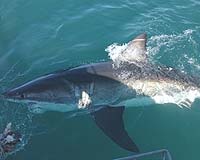James Murray, BusinessGreen, Wednesday 30 September 2009 at 15:21:00
As Exelon becomes the latest energy firm to quit the business group over its anti-climate legislation stance, pressure mounts on Nike to follow suit
The US Chamber of Commerce's controversial calls to put the latest climate science "on trial" as part of its campaign to block proposed carbon legislation could yet prompt another high-profile walk out, after shareholder groups yesterday wrote to Nike calling on the sportswear giant to quit the trade group.
According to reports, three socially responsible investor groups - Green Century Funds, Newground Social Investment and the Basilian Fathers of Toronto - have written to the company arguing that it is no longer in the firm's interest to be associated with a group that is lobbying to block US climate change legislation.
In an open letter to Nike chief executive Mark Parker, Kristina Curtis, president of Green Century Equity Fund, said that the investment firm was "dismayed that Nike has not taken a more aggressive stance" against the Chamber, particularly given that it has been a vocal supporter of tighter climate change legislation through its position as a founding member of the Business for Innovative Climate and Energy Policy group.
Curtis added that the decision last week by US energy firms Pacific Gas & Electric Company (PG &E) and PNM Resources to leave the Chamber of Commerce over its climate change stance had set a "new standard for corporate responsibility in the face of profoundly unsustainable actions" that Nike should now follow. …
Nike reported to be quitting Chamber of Commerce post over climate controversy








 Keith's note: Reliable sources report that there will be a press conference at NASA HQ at 2:00 pm this Thursday featuring lunar scientist
Keith's note: Reliable sources report that there will be a press conference at NASA HQ at 2:00 pm this Thursday featuring lunar scientist 
























